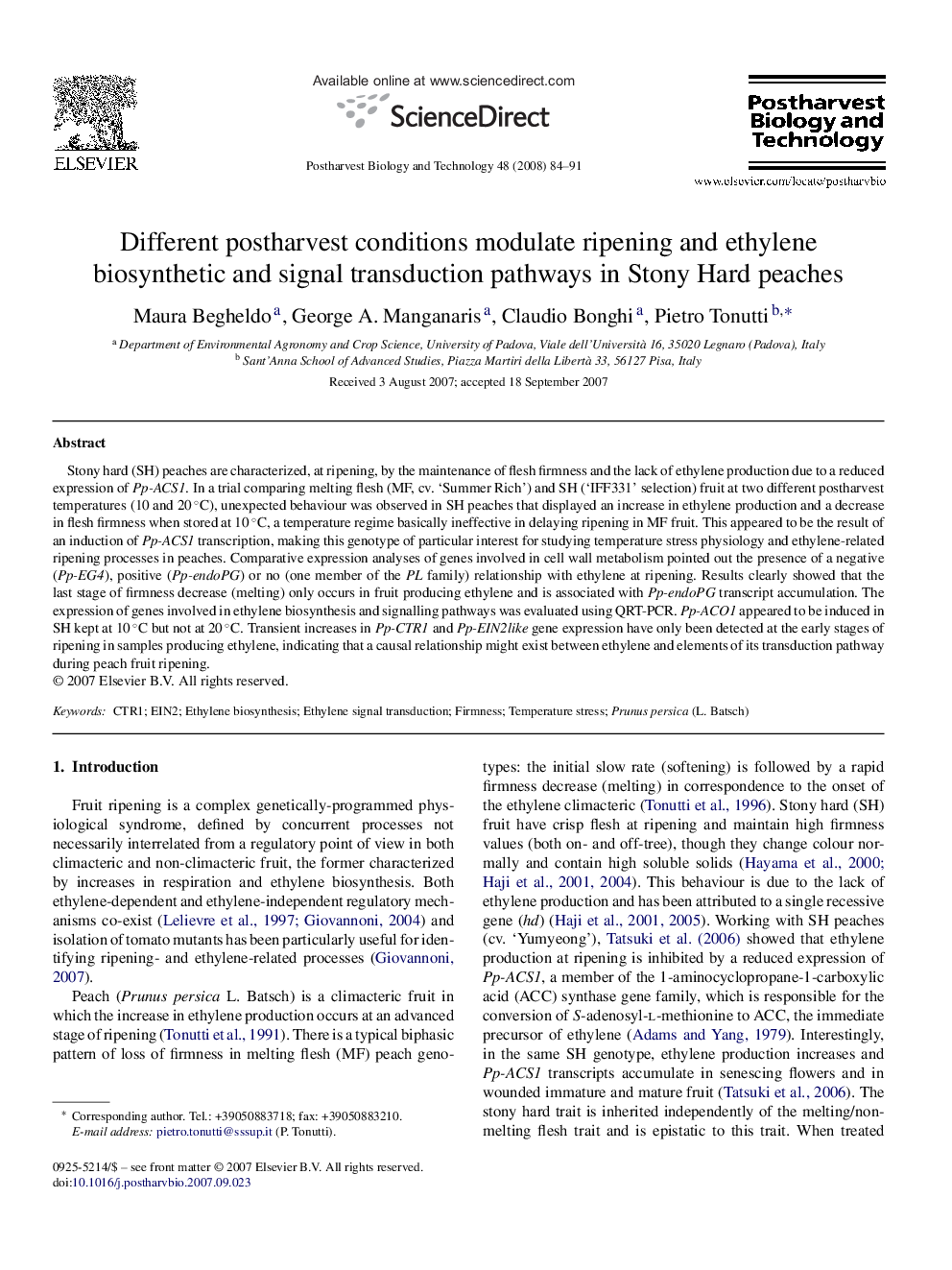| Article ID | Journal | Published Year | Pages | File Type |
|---|---|---|---|---|
| 4519548 | Postharvest Biology and Technology | 2008 | 8 Pages |
Stony hard (SH) peaches are characterized, at ripening, by the maintenance of flesh firmness and the lack of ethylene production due to a reduced expression of Pp-ACS1. In a trial comparing melting flesh (MF, cv. ‘Summer Rich’) and SH (‘IFF331’ selection) fruit at two different postharvest temperatures (10 and 20 °C), unexpected behaviour was observed in SH peaches that displayed an increase in ethylene production and a decrease in flesh firmness when stored at 10 °C, a temperature regime basically ineffective in delaying ripening in MF fruit. This appeared to be the result of an induction of Pp-ACS1 transcription, making this genotype of particular interest for studying temperature stress physiology and ethylene-related ripening processes in peaches. Comparative expression analyses of genes involved in cell wall metabolism pointed out the presence of a negative (Pp-EG4), positive (Pp-endoPG) or no (one member of the PL family) relationship with ethylene at ripening. Results clearly showed that the last stage of firmness decrease (melting) only occurs in fruit producing ethylene and is associated with Pp-endoPG transcript accumulation. The expression of genes involved in ethylene biosynthesis and signalling pathways was evaluated using QRT-PCR. Pp-ACO1 appeared to be induced in SH kept at 10 °C but not at 20 °C. Transient increases in Pp-CTR1 and Pp-EIN2like gene expression have only been detected at the early stages of ripening in samples producing ethylene, indicating that a causal relationship might exist between ethylene and elements of its transduction pathway during peach fruit ripening.
